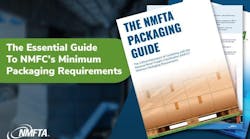Truckers serving the ports of Los Angeles and Long Beach are banding together to fight the Truck Replacement Plan (TRP). They say this component of the Clean Air Action Plan (CAAP), currently under consideration by both ports, if implemented as drafted would eliminate 10,000 jobs and force more than 16,000 independent truckers to give up their trucks and become employees of large carriers.
“We fully support achieving cleaner air and other measures aimed at reducing pollution, but we are working to find a better alternative to the TRP initiative, so we can achieve those environmental goals without eradicating more than 10,000 jobs,” said Roger Ramirez, president of the Harbor Truckers for a Sustainable Future (HTSF), made up of short-haul drayage firms and independent owner-operators.
At issue is the TRP’s focus on reducing air pollution caused by older trucks by forcing them out of the port and requiring all newer trucks to be retrofitted with expensive pollution-control devices
“Our group wants to ensure that decisions are made based on the best information available and with input from our industry,” Ramirez explained. “The current proposal is poorly researched and unnecessarily targets working class people, most of whom are Latino.”
He added that the proposed plan would most likely force 1,300 small drayage firms to shut down and threaten thousands of other trucking services – because the economic effect would ripple out across Southern California and the nation in the form of higher prices on goods. Those are but several reasons why HTSF cannot accept any part of the plan as written, he said.
Ramirez noted that available research clearly indicates that trucks in the port area contribute less than 4% to the region’s air pollution. HTSF is proposing that the plan be shelved until a new advisory group can be formed to study and recommend an alternative that spares such a devastating impact on the region and industry.
“It is clear that much more is at risk if this ill-conceived plan is enacted, including political consequences from voters who are directly affected,” he said.


